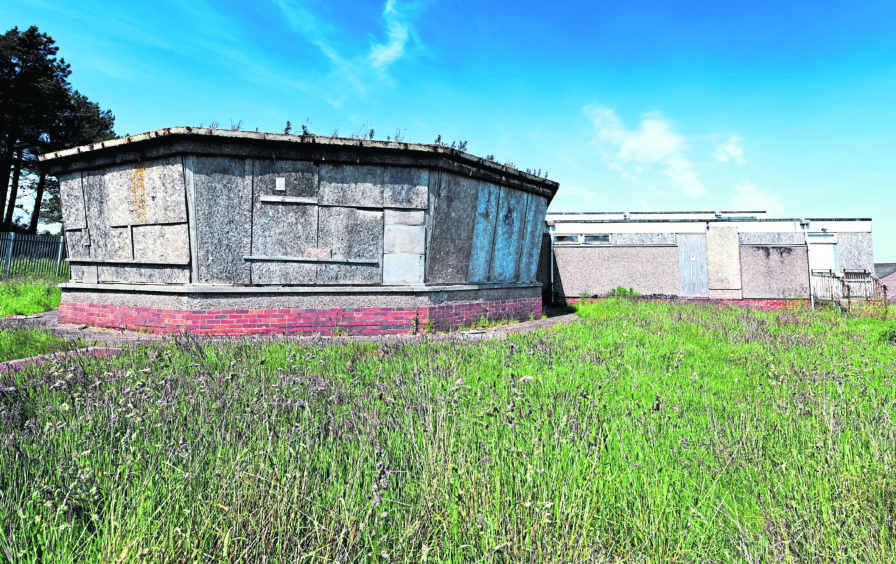
It was set to be just a routine night shift for the men of Stonehaven Coast Radio Station, dealing with the chatter and communications in their role as the lifeline between sea and shore.
Then, shortly after 10pm came the distress call. It was Piper Alpha.
A violent blast had ripped through the structure and the mayday sent from the platform, 120 miles north-east of Aberdeen, was being picked up by the coastal radio station, nestling above the Mearns town.
Eddie MacRae was one of the radio operators on duty in Stonehaven that fateful night, on July 6 1988.
“It was quite frightening,” he said.
“Anybody sitting at their desk and getting a message like that would feel a bit of panic.
“You didn’t want to get anything wrong. You wanted to get as many of the facts, as accurately as you could.
“Keeping it calm and professional was one of the main things. Although the old ticker was thumping away, you had to be accurate.”
He said both Stonehaven and Wick radio stations first heard the distress call and became central in helping co-ordinate the response to the disaster, with officers at Wick directly handling the distress calls.
As the horror and drama unfolded on Piper Alpha, Stonehaven was key in handling back-up communications between rescue and support vessels scrambled to the scene.
One of them, the firefighting and rescue ship Tharos, was a key player that night and was kept on a continuous call from 11pm to 4.30am the next morning.
As the awful night went on, the Tharos took on casualties picked up by standby vessels and an RAF rescue helicopter.
Onboard paramedics treated the injured.
It was from the Tharos that the first helicopter left with casualties for Aberdeen Royal Infirmary.
It was a harrowing experience for the radio station officers having to listen to the communications, learning through the airwaves of the enormity of the disaster, the scale of the loss of lives and the desperate efforts to save survivors.
Piper Alpha was one of the most dramatic moments in the history of Stonehaven Radio Station, which transmitted for the last time 20 years ago, on June 30 2000.
The day the station – call sign GND – fell silent it brought to an end nine decades of life-saving work.
The first station was built in 1910 and used as a telegraphy station, passing messages across the country and between continents for the Admiralty.
Wooden huts were built in 1942, near to Dunnottar Castle, and the station used for transmitting and receiving vital wartime information to and from shipping.
In the post-war years, GND became a vital part of the UK coast radio station network, keeping a distress watch, handling mayday calls and co-ordinating rescue operations, working with the Coastguard and RNLI.
By this time, it had been taken over by the Post Office and was also handling commercial messages for trawlers.
“In the old days the fishing vessels had top-notch radio operators,” said Mr MacRae, 84, who worked at the radio station for 20 years.
“They sent information about the big catches in code, so nobody else could translate how much fish they had caught.”
By 1947 the cluster of huts and masts on the fields by Dunnottar were not fit for purpose and a new station was planned.
The 1958 building is the one that stands today.
It handled safety of life at sea (Solas) communications. It kept distress watches on both morse code and radio frequencies.
The station was also the hub for commercial messages and radio links between ships and their companies, or even putting phone calls from crew members through to their loved ones.
By the early 1970s, the Post Office was considering closing Stonehaven, only for oil to intervene.
As the black gold flowed, there was an urgent need to co-ordinate communications in speech and radio telex for the oil industry, and GND lived to broadcast another day.
Plan to repurpose abandoned station
By 1999, as technology advanced, it was clear the old days of “steam radio” were numbered and BT (formerly the Post Office) shut down GND on June 30 2000.
The occasion was marked with a dinner at Stonehaven’s Station Hotel, attended by past and present station staff, offshore radio operators and senior management, starting a tradition that continues to this day.
But Stonehaven Radio Station is a survivor. Today it might stand empty and boarded up, but there are plans to bring it back to life, and on a new frequency, as a brewery and visitor centre.
Robert Lindsay is the founder of Stonehaven’s Six Degrees North brewery.
“Six Degrees North have acquired the site and we are hoping to develop it into a small brewery and visitor centre,” he said.
“We think that would attract people to the area and bring life back to an iconic Stonehaven building, complementing that of our neighbours at Dunnottar Castle and the wonderful seaside town of Stonehaven.”
He added: “The radio station is quite dear to quite a number of local people.
“Obviously it has a historic significance, so from our perspective we hope to still be able to maintain some of that history and exhibit some of the goings-on that happened there.”